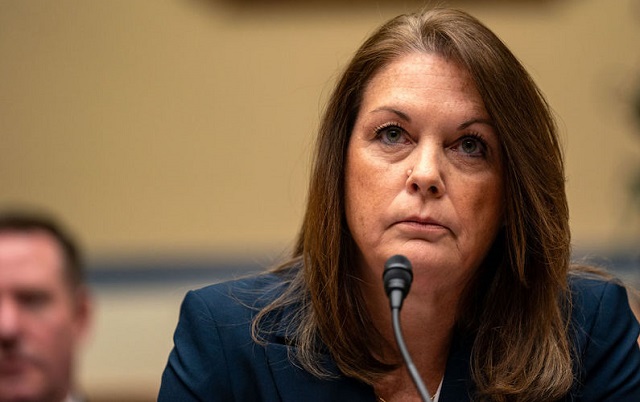Censorship Industrial Complex
Trudeau government abandoning long-threatened ‘hate speech’ bill after backlash
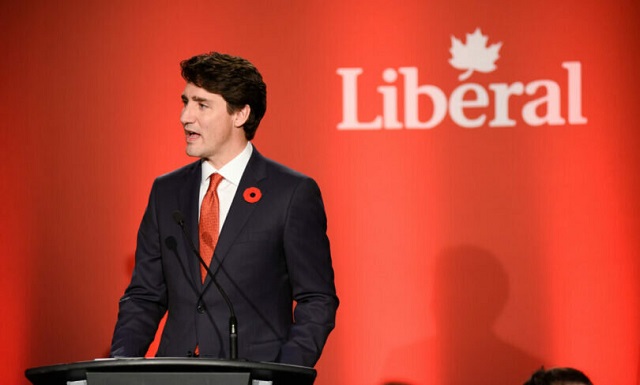
From LifeSiteNews
Conservative Party Leader Pierre Poilievre has warned that Trudeau’s desire to censor online ‘hate speech’ is nothing more than a ‘woke authoritarian’ tool to silence views that Trudeau dislikes.
The Liberal government is shelving its long-threatened bill to regulate truth and “disinformation” on the internet.
According to information obtained on February 21 by Blacklock’s Reporter, the Liberal government, under the leadership of Prime Minister Justin Trudeau, is abandoning legislation to regulate “hate speech” on the internet following feedback from Canadians that they consider the measure unconstitutional.
“The government heard from Canadians and stakeholders that while false and misleading information online can carry significant consequences, creating legislation and policies that restrict or otherwise limit speech based on the veracity of information would undermine freedom of expression to an unacceptable degree,” Public Safety Minister Dominic LeBlanc wrote the Commons ethics committee.
The committee had previously recommended legislation to “hold online platforms accountable for publishing false or misleading information”; however, LeBlanc replied that internet literacy programs were sufficient to regulate Canadians internet use.
“Legislation is not the only tool in the government’s toolbox to combat false or misleading information,” he said.
Additionally, most of 9,218 petitioners to the Canadian Heritage Department condemned the proposed legislation as unconstitutional.
Likewise, according to Privy Council research in 2023, most Canadians opposed the measure, saying that “it was of critical importance for Canadians to be able to leave comments and have their voices heard regarding initiatives and policies important to them.”
“While most believed harmful content online represented a growing concern few felt it to be a major issue at present,” the report said. “Several were of the view that individuals were typically able to avoid harmful content by blocking it or not utilizing platforms on which it was present.”
The legislation was first proposed in 2021, when the Trudeau government suggested that a “Digital Safety Commissioner” should police “content moderation” on the internet. Those who violated the “content moderation” would face up to $25 million in fines.
Then-Heritage Minister Steven Guilbeault argued the forbidden content should include anything that disparaged government institutions, saying, “Canada has a world-renowned public service, and it’s integral that we don’t attack them.”
“I think everybody in this country, and especially elected officials, have, I think, a responsibility, a duty to ensure that we protect our institutions and that the last thing we should try to do is to somehow diminish them just in the hope we can score points,” he added.
While Liberals support the measure, Conservative Party Leader Pierre Poilievre recently declared that Trudeau’s desire to censor online “hate speech” is nothing more than a “woke authoritarian” tool to silence views that Trudeau dislikes.
“What does Justin Trudeau mean when he says the worst hate speech?” he questioned during a press conference earlier this week. “He means speech he hates.”
Poilievre warned that Liberals would label anything they disagree with as “hate speech,” referencing former adviser Gerald Butts said that it was “hate speech” to criticize Trudeau for using the term “peoplekind,” labelling those who made fun of Trudeau as “Nazis.”
Poilievre also reminded Canadians that Trudeau branded Canadians who protested COVID regulations in the Freedom Convoy as “a small fringe minority” with “unacceptable views.”
“I point out the irony that someone who spent the first half of his adult life as a practicing racist, who dressed up in hideous racist costumes so many times he says he can’t remember them all, should then be the arbiter on what constitutes hate,” said Poilievre.
“What he should actually do is look into his own heart and ask himself why he was such a hateful racist… And maybe in that way, rather than through coercion, he could help us all in the fight against real hate,” he added.
“What does Justin Trudeau mean when he says the word hate speech? He means speech he hates.”
True North’s @AndrewLawton asks Pierre Poilievre whether the Conservatives will oppose the Trudeau government’s reintroduction of the online harms bill. pic.twitter.com/7PM9iJ5rzs
— True North (@TrueNorthCentre) February 21, 2024
While the bill regulating “hate speech” seems to have been abandoned for now, since taking office, Trudeau managed to pass bills C-11 and C-18, both of which restrict free speech over the internet.
Bill C-11, or the Online Streaming Act, became law last year and now mandates that Canada’s broadcast regulator, the Canadian Radio-television and Telecommunications Commission (CRTC), oversee regulating online content on platforms such as YouTube and Netflix to ensure that such platforms are promoting content in accordance with a variety of its guidelines.
Recently, Canadian law professor Dr. Michael Geist warned that new powers granted to Canada’s broadcast regulator via Bill C-11 will not stop at “Web Giants” but will lead to the government going after “news sites” and other “online” video sites as well.
Trudeau’s other internet censorship law, Bill C-18, the Online News Act, was passed by the Senate in June.
This law mandates that Big Tech companies pay to publish Canadians content on their platforms.
As a result, Meta, the parent company of Facebook and Instagram, blocked all access to news content in Canada.
Critics of Trudeau’s recent laws, such as tech mogul Elon Musk, have said it shows that “Trudeau is trying to crush free speech in Canada.”
Censorship Industrial Complex
New federal legislation should remind Canadians of Orwell’s 1984
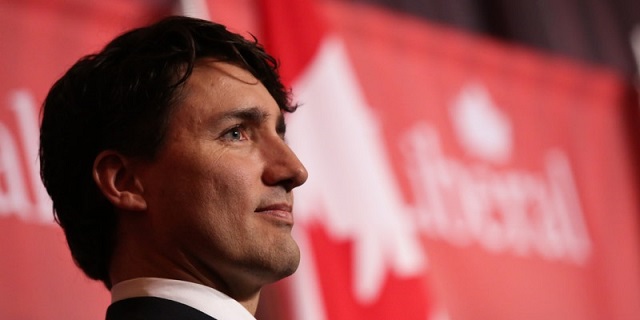
From the Fraser Institute
By Jake Fuss and Alex Whalen
The legislation seeks to punish citizens not just for what the governments deems as “hate speech” but also grants the state power to bring Canadians before tribunals on suspicion that they might say something hateful in the future.
This year marks the 75th anniversary of George Orwell’s classic novel 1984 (and it’s been 40 years since the actual year 1984). In the novel, Orwell explains the dangers of totalitarianism by exploring what happens when government exercises extreme levels of control over citizens including censoring and controlling language. While Canada is a relatively free country in 2024, there are aspects of Orwell’s world reflected in government policy today.
The Human Freedom Index, published annually by the Fraser Institute and Cato Institute, defines freedom as a social concept that recognizes the dignity of individuals by the absence of coercive constraint. In a free society, citizens are free to do, say or think almost anything they want, provided it does not infringe on the right of others to do the same.
Canada currently fares relatively well compared to other countries on the Human Freedom Index, placing 13th out of 165 countries. However, our score has dropped six spots on the index since 2008 when Canada recorded its highest ever rank.
This is not surprising given the Trudeau government’s recent efforts to control and manage the free exchange of ideas. The recent Online Streaming Act imposes various content rules on major streaming services such as Netflix, and requirements to extract funds to be redirected toward favoured groups. The Act seemingly seeks to bring the entire Internet under the regulation of a government body.
In another piece of recent legislation, the Online News Act, the government attempted to force certain social media platforms to pay other legacy news outlets for carrying content. In response, the social media platforms chose simply not to allow content from those news providers on their platforms, resulting in a dramatic reduction of Canadians’ access to news.
Now, a new piece of federal legislation—Bill C-63, the Online Harms Act—seeks to control language and grant government power to punish citizens for what the government deems to be unfavourable speech.
The government has sold Bill C-63 as a way to promote the online safety of Canadians, reduce harms, and ensure the operators of social media services are held accountable. In reality, however, the bill is Orwell’s Big Brother concept brought to life, where government controls information and limits free exchange. The legislation seeks to punish citizens not just for what the governments deems as “hate speech” but also grants the state power to bring Canadians before tribunals on suspicion that they might say something hateful in the future. Not surprisingly, many have raised concerns about the constitutionality of the Bill, which will surely be tested in court.
Put differently, the Bill dictates that citizens may not only be punished for speech crimes, but also punished when another person or group of individuals believes they are likely to commit such a crime. The legislation outlines punishment mechanisms at the government’s disposal, including electronic monitoring devices, house arrest or jail time. Frighteningly, if the government doesn’t like what you say or even suspects they won’t like what you might say, then you could face serious repercussions.
That sounds eerily similar to Orwell’s concept of the Thought Police. In 1984, a secret police force investigates and punishes “thoughtcrimes,” which are personal and political thoughts unapproved by the state. The Thought Police monitor citizens and arrest anyone who engages in such crimes, to prevent personal autonomy and freedom of thought, thus providing the state with immense power and control over the populace.
The big government approach inherent in the Online Harms Act and others is antithetical to the idea of personal freedom. Famed English philosopher J.S. Mill was particularly observant in recognizing the perils of controlling and punishing speech government officials deem “dangerous.” In his book On Liberty, Mill stated “If any opinion is compelled to silence, that opinion may, for aught we can certainly know, be true. To deny this is to assume our own infallibility. Secondly, though the silenced opinion be an error, it may, and very commonly does, contain a portion of the truth; and since the general of prevailing opinion on any subject is rarely or never the whole truth, it is only by the collision of adverse opinions that the remainder of the truth has any chance of being supplied.”
Orwell’s famous novel provides a guidebook for what governments should avoid doing at all costs. Unfortunately, hints of 1984 have seeped into government policy in Canada today. The erosion of personal freedom is not something we should take for granted anymore.
CBDC Central Bank Digital Currency
WEF report: Digital ID has become a standard feature for everyday life in Pakistan
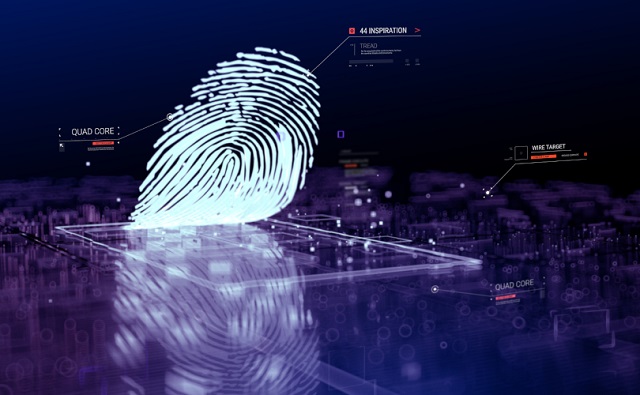
From LifeSiteNews
A WEF report, co-authored by the U.N. and World Bank, states that digital public infrastructure ‘is transforming lives in Pakistan,’ ushering in a need for digital ID such that adults in Pakistan cannot lead normal lives without it.
Digital identity sits at the heart of Pakistan’s Digital Public Infrastructure (DPI) transformation and is now a standard feature in every adult’s life, according to the WEF Agenda.
Published on the World Economic Forum (WEF) Agenda blog and co-written by representatives from the World Bank and the United Nations’ Better Than Cash Alliance, the story “Digital public infrastructure is transforming lives in Pakistan. Here’s how” highlights how adults in Pakistan cannot lead a normal life without having a digital identity, which is a key component of DPI.
1/6
🌟 Exciting Update! 🌟 We are thrilled to introduce Pakistan’s first locally assembled digital identity kit, a result of the collaborative efforts between NADRA Technologies Limited (NTL) and the National Radio and Telecommunication Corporation (NRTC). pic.twitter.com/gUsUdBVnWm— NADRA (@NadraPak) May 17, 2024
“At the heart of Pakistan’s digital transformation is the National Database and Registration Authority (NADRA), established to overhaul the country’s identity systems,” the authors write, adding:
This was a foundational change, positioning Pakistan among a select group of nations equipped to manage comprehensive digital identities for over 240 million citizens.
The NADRA-issued Computerized National Identity Card (CNIC) is now a standard feature in every adult Pakistani’s life, facilitating a range of routine tasks such as opening bank accounts, purchasing airline tickets, acquiring driver’s licenses, and qualifying for social protection, thereby ensuring seamless identity authentication for every citizen.

Digital Public Infrastructure is a civic technology stack consisting of three components:
- Digital Identity,
- Fast Digital Payment Systems (e.g. programmable Central Bank Digital Currencies [CBDCs]),
- Data Exchanges Between Public and Private Entities.
Now, “Pakistan is set to launch several ambitious DPI initiatives, including expanding the RAAST payment system, implementing a nationwide digital health records system, and launching a blockchain-based land registry,” according to the WEF Agenda.
From the State Bank of Pakistan, RAAST is the country’s first instant payment system that enables end-to-end digital payments among individuals, businesses, and government entities instantaneously.
In 2020 the State Bank of Pakistan partnered with non-profit Karandaaz, which is a “prime delivery partner of the Bill and Melinda Gates Foundation.”
In 2021 the Bill and Melinda Gates Foundation granted Karandaaz $4 million “to integrate the Ehsaas Program (biggest Government to Person Program in Pakistan) with RAAST-Pakistan’s Instant Payment System to enable interoperability and choice for the beneficiaries.”
Contributing to the WEF blog post are the World Bank’s technical advisor for Digital Public Infrastructure and Digital ID Tariq Malik, along with the U.N.-based Better Than Cash Alliance’s head of Asia Pacific Prerna Saxena and Pakistan lead Raza Matin.
The U.N.’s Better Than Cash Alliance advocates for “responsible digital payments” and repeatedly states it does not want to abolish physical cash.
However, the Better Than Cash Alliance does want more women to have accounts in their own name, which could also lead to more citizens being tracked, traced, and taxed in the digital system:
We do not want to abolish physical cash, but rather wish to ensure that people have choice in how they make and receive payments. It is important for people to have digital payment options that are responsible and ‘better than cash’ – for example, a woman can have a payment account in her own name, which she manages. To be clear, we do not want to prevent people from using cash, as sometimes it is the best or only payment option.
Speaking at the World Bank Group’s inaugural Global Digital Summit last March, World Bank President Ajay Banga said that digital identity should be embraced worldwide, and that governments should be the owners, so they can guarantee privacy and security for their citizens.
According to Banga, once everyone is hooked-up to a digital ID, then it can be linked to existing infrastructure run by private companies.
“Creating a digital identity platform for citizenry is kind of foundational, and I believe your government should be the owner of your digital ID; private companies should not own that,” said the World Bank president, adding, “it is the social contract of the citizens of their countries to have an identity, a currency, and safety. We should not take that away from them.”
World Bank Pres Ajay Banga: "Creating a digital identity platform for citizenry is foundational; your govt should be the owner of your digital ID.. If you want this to be embraced around the world.. get a digital ID & move from there" Global Digital Summit https://t.co/Sa1GzCnloQ pic.twitter.com/kKClx5iUuT
— Tim Hinchliffe (@TimHinchliffe) March 11, 2024
“They should have the digital identity; that digital identity should guarantee the privacy of that citizen; it should help them with their security, but the government should give the identity,” said Banga, adding:
Once you do that, then connecting them to the infrastructure that a private company, either Ericsson or Verizon, or combinations of them – in fact mostly it’s a combination – then the question is, ‘What do you do with it that requires a digital ID?’ so you can start connecting with that citizen.
For Banga and other unelected globalists, digital identity is the key to unlocking access to goods and services through public-private partnerships – the fusion of corporation and state.
Last year, the United Nations partnered with the Bill and Melinda Gates Foundation to launch the 50-in-5 Digital Public Infrastructure campaign to accelerate digital ID, digital payments systems, and data sharing among 50 countries by 2028.
International journalist, Alex Newman: Unelected globalists—including Bill Gates, the UN and the WEF—are "building a giant digital gulag for all of humanity".
"They are using [digital ID, CBDCs and digital health certificates] to build a control system that will not just be able… pic.twitter.com/LPzjjz6U1n
— Wide Awake Media (@wideawake_media) May 16, 2024
Last week, former British prime minister-turned globalist technocracy enthusiast Tony Blair said that digital ID was essential to modern infrastructure but would require “a little work of persuasion.”
Tony Blair on "Digital ID is an essential part of a modern digital infrastructure […] Although, we have a little work of persuasion to do here!" https://t.co/XXGXivHnXv pic.twitter.com/SQ2JwqqexM
— Tim Hinchliffe (@TimHinchliffe) July 9, 2024
Speaking on a panel about Digital Public Infrastructure at the International Monetary Fund’s (IMF) 2023 Spring Meetings, Infosys co-founder and ex-chair of the Unique Identification Authority of India (UIDAI), Nandan Nilekani, said that everybody should have a digital ID, a bank account, and a smartphone as they were the “tools of the New World” for digital public infrastructure.
"What are the tools of the New World? Everybody should have a digital ID; everybody should have a bank account; everybody should have a smartphone. Then, anything can be done. Everything else is built on that": @NandanNilekani to @IMFNews #DigitalID #DigitalIdentity #IMFmeetings pic.twitter.com/6HIAqfBigz
— Tim Hinchliffe (@TimHinchliffe) April 19, 2023
India is the globalists’ shining example of what DPI should look like in practice.
Following the B20 India Summit last year, the leaders of the B20 published their annual communique, with a section dedicated to DPI rollouts.

The B20 India communique called on G20 nations to rollout DPI, with the first policy action being to “Promote the digitization of identities at the individual, enterprise, and farm levels that are both interoperable and recognized across borders.“
As a key performance indicator for digital ID rollouts, the B20 recommended that “G20 nations develop guidelines for unique single digital identification for MSME [micro, small, and medium-sized enterprises] and individuals that can be securely accessed (based on consent) by different government and private stakeholders for identity verification and information access within 3 years.”

Speaking at the WEF Global Technology Governance Summit in April 2021, Ukraine’s Minister of Digital Transformation Mykhailo Fedorov said that his government’s goal was to create a digital ID system that would make Ukraine the most convenient State in the world by operating like a digital service provider.
“We have to make a product that is so convenient that a person will be able to disrupt their stereotypes, to breakthrough from their fears, and start using a government-made application,” said Fedorov.
“Our goal is to enable all life situations with this digital ID,” he added.
While Ukraine has sought to enable all life situations with its digital ID, the WEF reports that digital identity “is now a standard feature in every adult Pakistani’s life.”
Reprinted with permission from The Sociable.
-

 National1 day ago
National1 day agoLiberals offer no response as Conservative MP calls Trudeau a ‘liar’ for an hour straight
-
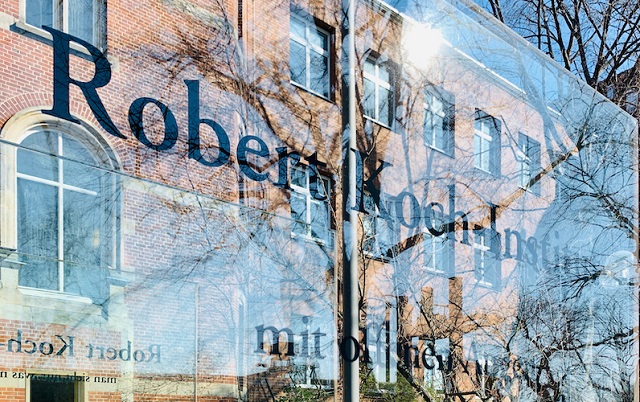
 COVID-191 day ago
COVID-191 day agoLeaked documents: German gov’t lied about shots preventing COVID, knew lockdowns did more harm than good
-
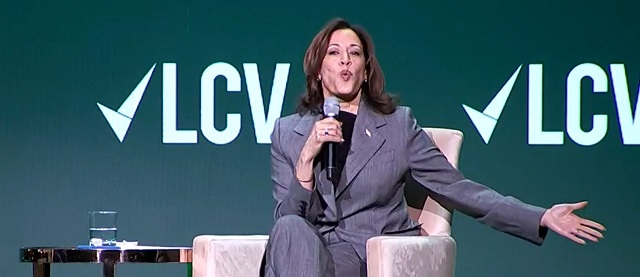
 Economy1 day ago
Economy1 day agoKamala Harris’ Energy Policy Catalog Is Full Of Whoppers
-

 International1 day ago
International1 day agoSwitzerland’s new portable suicide ‘pod’ set to claim its first life ‘soon’
-

 Business1 day ago
Business1 day agoFederal government seems committed to killing investment in Canada
-

 International19 hours ago
International19 hours agoHouse Passes Bipartisan Resolution Establishing Trump Assassination Attempt Task Force
-

 Crime9 hours ago
Crime9 hours agoEverything you need to know about the failed assassination attempt of Donald Trump
-

 Alberta1 day ago
Alberta1 day ago‘Fireworks’ As Defence Opens Case In Coutts Two Trial



